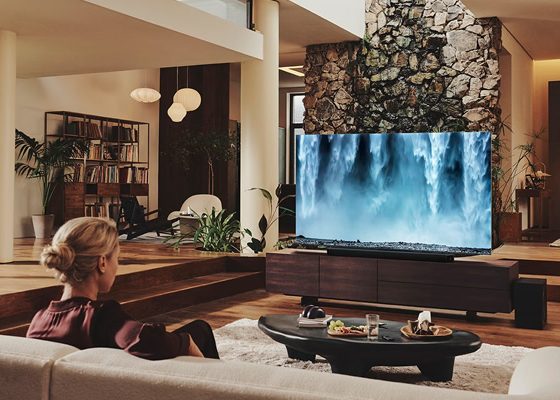In the rapidly evolving landscape of computing, the quest for more compact and efficient systems has given rise to a fascinating debate: Mini PCs versus Compact Desktops. These pint-sized powerhouses have challenged traditional notions of desktop computing, catering to both casual users and professionals seeking exceptional performance in a space-saving package. This article delves into the intricacies of these tech marvels, helping you make an informed decision about which suits your needs best.
Introduction
Mini PCs and Compact Desktops are revolutionizing the computing industry, offering innovative solutions that pack a punch without consuming significant space. Let’s explore their individual merits and drawbacks to help you determine the ideal choice for your computing needs.
What Are Mini PCs and Compact Desktops?
- Defining the Mini PC: Mini PCs, also known as Small Form Factor (SFF) PCs, are ultra-compact, fully functional computers that fit in the palm of your hand.
- Compact Desktops Unveiled: Compact Desktops, sometimes called SFF Desktops, are small yet slightly larger than Mini PCs, offering a middle ground between traditional towers and Mini PCs.
Performance and Processing Power
- Mini PCs: Despite their diminutive size, Mini PCs often house powerful processors and integrated graphics, ideal for light gaming, multimedia, and office tasks.
- Compact Desktops: Compact Desktops step up the game, accommodating dedicated graphics cards and more extensive cooling systems for enhanced performance.
Size Matters: Portability vs. Space Optimization
- Mini PCs: Mini PCs excel in portability and minimalistic aesthetics, perfect for those constantly on the move or tight desk spaces.
- Compact Desktops: Compact Desktops prioritize space optimization, providing expandability for additional hardware components and future upgrades.
Connectivity Options
- Mini PCs: Mini PCs offer a range of connectivity options, including USB-C, HDMI, and versatile Wi-Fi capabilities.
- Compact Desktops: Compact Desktops typically provide more ports, making them suitable for a variety of peripherals and external devices.
Gaming and Graphics
- Mini PCs: While Mini PCs can handle casual gaming, they often lack the power for intensive gaming due to integrated graphics.
- Compact Desktops: Compact Desktops offer the option to incorporate dedicated graphics cards, making them the preferred choice for gaming enthusiasts and content creators.
Upgradability and Customization
- Mini PCs: Mini PCs have limited upgradability options, often utilizing custom components.
- Compact Desktops: Compact Desktops allow users to customize and upgrade hardware components, offering longevity and adaptability.
Noise and Cooling
- Mini PCs: Mini PCs tend to have quieter, more energy-efficient cooling systems.
- Compact Desktops: Compact Desktops may generate more noise due to their more robust cooling mechanisms, ensuring optimal performance.
Price Range
- Mini PCs: Mini PCs usually come at a lower price point, making them an attractive choice for budget-conscious users.
- Compact Desktops: Compact Desktops are priced higher, reflecting their enhanced capabilities and potential for upgrades.
Form Factor and Aesthetics
- Mini PCs: Mini PCs boast sleek and compact designs, ideal for modern and minimalist setups.
- Compact Desktops: Compact Desktops offer a middle ground between traditional desktop towers and Mini PCs, often maintaining a sleek, sophisticated appearance.
Power Efficiency
- Mini PCs: Mini PCs are known for their energy-efficient operation, consuming less power.
- Compact Desktops: Compact Desktops consume slightly more power due to their enhanced hardware, but they are still efficient compared to full-sized desktops.
Operating System Compatibility
- Mini PCs: Mini PCs are versatile, supporting a wide range of operating systems, including Windows, Linux, and Chrome OS.
- Compact Desktops: Compact Desktops are also versatile in terms of operating systems and are often preferred by professionals for specific software requirements.
Connectivity to Monitors and Displays
- Mini PCs: Mini PCs often support multiple displays, making them suitable for multitasking and productivity.
- Compact Desktops: Compact Desktops offer more flexibility with multiple display outputs, making them an ideal choice for professionals and content creators.
Peripheral Compatibility
- Mini PCs: Mini PCs work well with a variety of peripherals and input devices, catering to general users.
- Compact Desktops: Compact Desktops are equipped to handle a wider range of peripherals and accessories, making them an excellent choice for power users.
Expansion Slots and Storage Options
- Mini PCs: Mini PCs may have limited expansion slots and storage options, with a focus on compactness.
- Compact Desktops: Compact Desktops provide more expansion slots and storage choices, enabling users to accommodate additional components.
Cooling Solutions
- Mini PCs: Mini PCs employ passive or compact cooling solutions, keeping them cool without excessive noise.
- Compact Desktops: Compact Desktops use more advanced cooling mechanisms to handle higher processing loads effectively.
Practical Use Cases
- Mini PCs: Mini PCs are perfect for basic computing, web browsing, and multimedia consumption.
- Compact Desktops: Compact Desktops cater to a broader range of applications, including gaming, content creation, and professional workloads.
Maintenance and Troubleshooting
- Mini PCs: Mini PCs are generally easier to maintain, with fewer components to worry about.
- Compact Desktops: Compact Desktops may require more complex troubleshooting and maintenance due to their expandable nature.
The Future of Mini PCs and Compact Desktops
- Technological Advancements: Both Mini PCs and Compact Desktops are expected to see continued advancements in hardware and design.
- Market Trends: The market for Mini PCs and Compact Desktops is likely to grow as more users seek compact yet powerful computing solutions.
Conclusion
As technology continues to progress, the choice between Mini PCs and Compact Desktops ultimately boils down to your specific needs and preferences. Whether you prioritize portability, performance, or upgradability, both Mini PCs and Compact Desktops have their unique strengths. The decision between these two next-gen computing solutions is a matter of finding the perfect balance between form and function, tailor-made for your digital lifestyle.



